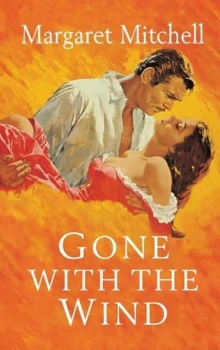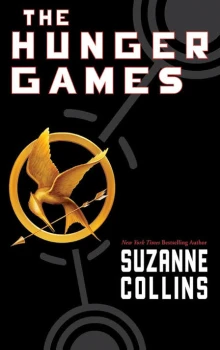-six
RHETT WAS GONE FOR THREE MONTHS and during that time Scarlett had no
word from him. She did not know where he was or how long he would be
gone. Indeed, she had no idea if he would ever return. During this time, she
went about her business with her head high and her heart sick. She did not
feel well physically but, forced by Melanie, she went to the store every day
and tried to keep up a superficial interest in the mills. But the store palled
on her for the first time and, although the business was treble what it had
been the year before and the money rolling in, she could take no interest in
it and was sharp and cross with the clerks. Johnnie Gallegher’s mill was
thriving and the lumber yard selling all his supply easily, but nothing
Johnnie did or said pleased her. Johnnie, as Irish as she, finally erupted into
rage at her naggings and threatened to quit, after a long tirade which ended
with “and the back of both me hands to you, Ma’m, and the curse of
Cromwell on you.” She had to appease him with the most abject of
apologies.
She never went to Ashley’s mill. Nor did she go to the lumber-yard
office when she thought he would be there. She knew he was avoiding her,
knew that her constant presence in his house, at Melanie’s inescapable
invitations, was a torment to him. They never spoke alone and she was
desperate to question him. She wanted to know whether he now hated her
and exactly what he had told Melanie, but he held her at arm’s length and
silently pleaded with her not to speak. The sight of his face, old, haggard
with remorse, added to her load, and the fact that his mill lost money every
week was an extra irritant which she could not voice.
His helplessness in the face of the present situation irked her. She did
not know what he could do to better matters but she felt that he should do
something. Rhett would have done something. Rhett always did
something, even if it was the wrong thing, and she unwillingly respected
him for it.
Now that her first rage at Rhett and his insults had passed, she began to
miss him and she missed him more and more as days went by without news
of him. Out of the welter of rapture and anger and heartbreak and hurt
pride that he had left, depression emerged to sit upon her shoulder like a
carrion crow. She missed him, missed his light flippant touch in anecdotes
that made her shout with laughter, his sardonic grin that reduced troubles
to their proper proportions, missed even his jeers that stung her to angry
retort. Most of all she missed having him to tell things to. Rhett was so
satisfactory in that respect. She could recount shamelessly and with pride
how she had skinned people out of their eyeteeth and he would applaud.
And if she even mentioned such things to other people they were shocked.
She was lonely without him and Bonnie. She missed the child more
than she had thought possible. Remembering the last harsh words Rhett
had hurled at her about Wade and Ella, she tried to fill in some of her
empty hours with them. But it was no use. Rhett’s words and the children’s
reactions opened her eyes to a startling, a galling truth. During the
babyhood of each child she had been too busy, too worried with money
matters, too sharp and easily vexed, to win either their confidence or
affection. And now, it was either too late or she did not have the patience
or the wisdom to penetrate their small secretive hearts.
Ella! It annoyed Scarlett to realize that Ella was a silly child but she
undoubtedly was. She couldn’t keep her little mind on one subject any
longer than a bird could stay on one twig and even when Scarlett tried to
tell her stories, Ella went off at childish tangents, interrupting with
questions about matters that had nothing to do with the story and
forgetting what she had asked long before Scarlett could get the
explanation out of her mouth. And as for Wade—perhaps Rhett was right.
Perhaps he was afraid of her. That was odd and it hurt her. Why should her
own boy, her only boy, be afraid of her? When she tried to draw him out in
talk, he looked at her with Charles’ soft brown eyes and squirmed and
twisted his feet in embarrassment. But with Melanie, he bubbled over with
talk and brought from his pocket everything from fishing worms to old
strings to show her.
Melanie had a way with brats. There was no getting around it. Her own
little Beau was the best behaved and most lovable child in Atlanta.
Scarlett got on better with him than she did with her own son because
little Beau had no self-consciousness where grown people were concerned
and climbed on her knee, uninvited, whenever he saw her. What a
beautiful blond boy he was, just like Ashley! Now if only Wade were like
Beau— Of course, the reason Melanie could do so much with him was that
she had only one child and she hadn’t had to worry and work as Scarlett
had. At least, Scarlett tried to excuse herself that way but honesty forced
her to admit that Melanie loved children and would have welcomed a
dozen. And the over-brimming affection she had was poured out on Wade
and the neighbors’ broods.
Scarlett would never forget the shock of the day she drove by Melanie’s
house to pick up Wade and heard, as she came up the front walk the sound
of her son’s voice raised in a very fair imitation of the Rebel yell—Wade
who was always as still as a mouse at home. And manfully seconding
Wade’s yell was the shrill piping of Beau. When she had walked into the
sitting room she had found the two charging at the sofa with wooden
swords. They had hushed abashed as she entered and Melanie had arisen,
laughing and clutching at hairpins and flying curls, from where she was
crouching behind the sofa.
“It’s Gettysburg,” she explained. “And I’m the Yankees and I’ve
certainly gotten the worst of it. This is General Lee,” pointing to Beau,
“and this is General Pickett,” putting an arm around Wade’s shoulder.
Yes, Melanie had a way with children that Scarlett could never fathom.
“At least,” she thought, “Bonnie loves me and likes to play with me.”
But honesty forced her to admit that Bonnie infinitely preferred Rhett to
her. And perhaps she would never see Bonnie again. For all she knew,
Rhett might be in Persia or Egypt and intending to stay there forever.
When Dr. Meade told her she was pregnant, she was astounded, for she
had been expecting a diagnosis of biliousness and overwrought nerves.
Then her mind fled back to that wild night and her face went crimson at
the memory. So a child was coming from those moments of high rapture—
even if the memory of the rapture was dimmed by what followed. And for
the first time she was glad that she was going to have a child. If it were only
a boy! A fine boy, not a spiritless little creature like Wade. How she would
care for him! Now that she had the leisure to devote to a baby and the
money to smooth his path, how happy she would be! She had an impulse to
write to Rhett in care of his mother in Charleston and tell him. Good
Heavens, he must come home now! Suppose he stayed away till after the
baby was born! She could never explain that! But if she wrote him he’d
think she wanted him to come home and he would be amused. And he
mustn’t ever think she wanted him or needed him.
She was very glad she had stifled this impulse when her first news of
Rhett came in a letter from Aunt Pauline in Charleston where, it seemed,
Rhett was visiting his mother. What a relief to know he was still in the
United States, even if Aunt Pauline’s letter was infuriating. Rhett had
brought Bonnie to see her and Aunt Eulalie and the letter was full of
praise.
“Such a little beauty! When she grows up she will certainly be a belle.
But I suppose you know that any man who courts her will have a tussle
with Captain Butler, for I never saw such a devoted father. Now, my dear, I
wish to confess something. Until I met Captain Butler, I felt that your
marriage with him had been a dreadful mésalliance for, of course, no one in
Charleston hears anything good about him and everyone is so sorry for his
family. In fact, Eulalie and I were uncertain as to whether or not we should
receive him—but, after all, the dear child is our great-niece. When he
came, we were pleasantly surprised, most pleasantly, and realized how un-
Christian it is to credit idle gossip. For he is most charming. Quite
handsome, too, we thought, and so very grave and courteous. And so
devoted to you and the child.
“And now, my dear, I must write you of something that has come to our
ears—something Eulalie and I were loath to believe at first. We had heard,
of course, that you sometimes did about at the store that Mr. Kennedy left
you. We had heard rumors but, of course, we denied them. We realized that
in those first dreadful days after the war, it was perhaps necessary,
conditions being what they were. But there is no necessity now for such
conduct on your part, as I know Captain Butler is in quite comfortable
circumstances and is, moreover, fully capable of managing for you any
business and property you may own. We had to know the truth of these
rumors and were forced to ask Captain Butler point-blank questions which
was most distressing to all of us.
“With reluctance he told us that you spent your mornings at the store
and would permit no one else to do the bookkeeping. He also mentioned
that you had some interest in a mill or mills (we did not press him on this,
being most upset at this information which was news to us) that
necessitated your riding about alone, or attended by a ruffian who, Captain
Butler assures us, is a murderer. We could see how this wrung his heart and
think he must be a most indulgent—in fact, a far too indulgent husband.
Scarlett, this must stop. Your mother is not here to command you and I
must do it in her place. Think how your little children will feel when they
grow older and realize that you were in trade! How mortified they will be to
know that you exposed yourself to the insults of rude men and the dangers
of careless gossip in attending to mills. Such unwomanly—”
Scarlett flung down the letter unfinished, with an oath. She could just
see Aunt Pauline and Aunt Eulalie sitting in judgment on her in the
crumbling house on the Battery with little between them and starvation
except what she, Scarlett, sent them every month. Unwomanly? By God, if
she hadn’t been unwomanly Aunt Pauline and Aunt Eulalie probably
wouldn’t have a roof over their heads this very moment. And damn Rhett
for telling them about the store and the bookkeeping and the mills!
Reluctant, was he? She knew very well the joy he took in palming himself
off on the old ladies as grave, courteous and charming, the devoted
husband and father. How he must have loved harrowing them with
descriptions of her activities with the store, the mills, the saloon. What a
devil he was. Why did such perverse things give him such pleasure?
But soon, even this rage passed into apathy. So much of the keen zest
had gone out of life recently. If only she could recapture the thrill and the
glow of Ashley—if only Rhett would come home and make her laugh.
* * *
They were home again, without warning. The first intimation of their
return was the sound of luggage being thumped on the front-hall floor and
Bonnie’s voice crying, “Mother!”
Scarlett hurried from her room to the top of the stairs and saw her
daughter stretching her short plump legs in an effort to climb the steps. A
resigned striped kitten was clutched to her breast.
“Gran’ma gave him to me,” she cried excitedly, holding the kitten out
by the scruff.
Scarlett swept her up into her arms and kissed her, thankful that the
child’s presence spared her her first meeting alone with Rhett. Looking
over Bonnie’s head she saw him in the hall below paying the cab driver. He
looked up, saw her and swept off his hat in a wide gesture, bowing as he
did. When she met his dark eyes, her heart leaped. No matter what he was,
no matter what he had done, he was home and she was glad.
“Where’s Mammy?” asked Bonnie, wriggling in Scarlett’s grasp and she
reluctantly set the child on her feet.
It was going to be more difficult than she anticipated, greeting Rhett
with just the proper degree of casualness and, as for telling him about the
new baby! She looked at his face as he came up the steps, that dark
nonchalant face, so impervious, so blank. No, she’d wait to tell him. She
couldn’t tell him right away. And yet, such tidings as these belonged first to
a husband, for a husband was always happy to hear them. But she did not
think he would be happy about it.
She stood on the landing, leaning against the banisters and wondered if
he would kiss her. But he did not. He only said: “You are looking pale, Mrs.
Butler. Is there a rouge shortage?”
No word of missing her, even if he didn’t mean it. And he might have at
least kissed her in front of Mammy who, after bobbing a curtsy, was leading
Bonnie away down the hall to the nursery. He stood beside her on the
landing, his eyes appraising her carelessly.
“Can this wanness mean that you’ve been missing me?” he questioned
and though his lips smiled, his eyes did not.
So that was going to be his attitude. He was going to be as hateful as
ever. Suddenly the child she was carrying became a nauseating burden
instead of something she had gladly carried, and this man before her,
standing carelessly with his wide Panama hat upon his hip, her bitterest
foe, the cause of all her troubles. There was venom in her eyes as she
answered, venom that was too unmistakable to be missed, and the smile
went from his face.
“If I’m pale it’s your fault and not because I’ve missed you, you conceited
thing. It’s because—” Oh, she hadn’t intended to tell him like this but the
hot words rushed to her lips and she flung them at him, careless of the
servants who might hear. “It’s because I’m going to have a baby!”
He sucked in his breath suddenly and his eyes went rapidly over her. He
took a quick step toward her as though to put a hand on her arm but she
twisted away from him, and before the hate in her eyes his face hardened.
“Indeed!” he said coolly. “Well, who’s the happy father? Ashley?”
She clutched the newel post until the ears of the carved lion dug with
sudden pain into her palm. Even she who knew him so well had not
anticipated this insult. Of course, he was joking but there were some jokes
too monstrous to be borne. She wanted to rake her sharp nails across his
eyes and blot out that queer light in them.
“Damn you!” she began, her voice shaking with sick rage. “You—you
know it’s yours. And I don’t want it any more than you do. No—no woman
would want the children of a cad like you. I wish— Oh, God, I wish it was
anybody’s baby but yours!”
She saw his swarthy face change suddenly, anger and something she
could not analyze making it twitch as though stung.
“There!” she thought in a hot rage of pleasure. “There! I’ve hurt him
now!”
But the old impassive mask was back across his face and he stroked one
side of his mustache.
“Cheer up,” he said, turning from her and starting up the stairs, “maybe
you’ll have a miscarriage.”
For a dizzy moment she thought what childbearing meant, the nausea
that tore her, the tedious waiting, the thickening of her figure, the hours of
pain. Things no man could ever realize. And he dared to joke. She would
claw him. Nothing but the sight of blood upon his dark face would ease
this pain in her heart. She lunged for him, swift as a cat, but with a light
startled movement, he sidestepped, throwing up his arm to ward her off.
She was standing on the edge of the freshly waxed top step, and as her arm
with the whole weight of her body behind it, struck his out-thrust arm, she
lost her balance. She made a wild clutch for the newel post and missed it.
She went down the stairs backwards, feeling a sickening dart of pain in her
ribs as she landed. And, too dazed to catch herself, she rolled over and over
to the bottom of the flight.
* * *
It was the first time Scarlett had ever been ill, except when she had her
babies, and somehow those times did not count. She had not been forlorn
and frightened then, as she was now, weak and pain racked and bewildered.
She knew she was sicker than they dared tell her, feebly realized that she
might die. The broken rib stabbed when she breathed, her bruised face and
head ached and her whole body was given over to demons who plucked at
her with hot pinchers and sawed on her with dull knives and left her, for
short intervals, so drained of strength that she could not regain grip on
herself before they returned. No, childbirth had not been like this. She had
been able to eat hearty meals two hours after Wade and Ella and Bonnie
had been born, but now the thought of anything but cool water brought on
feeble nausea.
How easy it was to have a child and how painful not to have one!
Strange, what a pang it had been even in her pain, to know that she would
not have this child. Stranger still that it should have been the first child
she really wanted. She tried to think why she wanted it but her mind was
too tired. Her mind was too tired to think of anything except fear of death.
Death was in the room and she had no strength to confront it, to fight it
back and she was frightened. She wanted someone strong to stand by her
and hold her hand and fight off death until enough strength came back for
her to do her own fighting.
Rage had been swallowed up in pain and she wanted Rhett. But he was
not there and she could not bring herself to ask for him.
Her last memory of him was how he looked as he picked her up in the
dark hall at the bottom of the steps, his face white and wiped clean of all
save hideous fear, his voice hoarsely calling for Mammy. And then there
was a faint memory of being carried upstairs, before darkness came over her
mind. And then pain and more pain and the room full of buzzing voices
and Aunt Pittypat’s sobs and Dr. Meade’s brusque orders and feet that
hurried on the stairs and tiptoed in the upper hall. And then like a
blinding ray of lightning, the knowledge of death and fear that suddenly
made her try to scream a name and the scream was only a whisper.
But that forlorn whisper brought instant response from somewhere in
the darkness beside the bed and the soft voice of the one she called made
answer in lullaby tones: “I’m here, dear. I’ve been right here all the time.”
Death and fear receded gently as Melanie took her hand and laid it
quietly against her cool cheek. Scarlett tried to turn to see her face and
could not. Melly was having a baby and the Yankees were coming. The
town was afire and she must hurry, hurry. But Melly was having a baby and
she couldn’t hurry. She must stay with her till the baby came and be strong
because Melly needed her strength. Melly was hurting so bad—there were
hot pinchers at her and dull knives and recurrent waves of pain. She must
hold Melly’s hand.
But Dr. Meade was there after all, he had come, even if the soldiers at
the depot did need him for she heard him say: “Delirious. Where’s Captain
Butler?”
The night was dark and then light and sometimes she was having a baby
and sometimes it was Melanie who cried out, but through it all Melly was
there and her hands were cool and she did not make futile anxious gestures
or sob like Aunt Pitty. Whenever Scarlett opened her eyes, she said
“Melly?” and the voice answered. And usually she started to whisper:
“Rhett—I want Rhett” and remembered, as from a dream, that Rhett didn’t
want her, that Rhett’s face was dark as an Indian’s and his teeth were white
in a jeer. She wanted him and he didn’t want her.
Once she said “Melly?” and Mammy’s voice said: “S’me, chile,” and put
a cold rag on her forehead and she cried fretfully: “Melly—Melanie” over
and over but for a long time Melanie did not come. For Melanie was sitting
on the edge of Rhett’s bed and Rhett, drunk and sobbing, was sprawled on
the floor, crying, his head in her lap.
Every time she had come out of Scarlett’s room she had seen him, sitting
on his bed, his door wide, watching the door across the hall. The room was
untidy, littered with cigar butts and dishes of untouched food. The bed was
tumbled and unmade and he sat on it, unshaven and suddenly gaunt,
endlessly smoking. He never asked questions when he saw her. She always
stood in the doorway for a minute, giving the news: “I’m sorry, she’s worse,”
or “No, she hasn’t asked for you yet. You see, she’s delirious” or “You
mustn’t give up hope, Captain Butler. Let me fix you some hot coffee and
something to eat. You’ll make yourself ill.”
Her heart always ached with pity for him, although she was almost too
tired and sleepy to feel anything. How could people say such mean things
about him—say he was heartless and wicked and unfaithful to Scarlett,
when she could see him getting thin before her eyes, see the torment in his
face? Tired as she was, she always tried to be kinder than usual when she
gave bulletins from the sick room. He looked so like a damned soul waiting
judgment—so like a child in a suddenly hostile world. But everyone was
like a child to Melanie.
But when, at last, she went joyfully to his door to tell him that Scarlett
was better, she was unprepared for what she found. There was a half-empty
bottle of whisky on the table by the bed and the room reeked with the
odor. He looked up at her with bright glazed eyes and his jaw muscles
trembled despite his efforts to set his teeth.
“She’s dead?”
“Oh, no. She’s much better.”
He said: “Oh, my God,” and put his head in his hands. She saw his wide
shoulders shake as with a nervous chill and, as she watched him pityingly,
her pity changed to horror for she saw that he was crying. Melanie had
never seen a man cry and of all men, Rhett, so suave, so mocking, so
eternally sure of himself.
It frightened her, the desperate choking sound he made. She had a
terrified thought that he was drunk and Melanie was afraid of drunkenness.
But when he raised his head and she caught one glimpse of his eyes, she
stepped swiftly into the room, closed the door softly behind her and went
to him. She had never seen a man cry but she had comforted the tears of
many children. When she put a soft hand on his shoulder, his arms went
suddenly around her skirts. Before she knew how it happened she was
sitting on the bed and he was on the floor, his head in her lap and his arms
and hands clutching her in a frantic clasp that hurt her.
She stroked the black head gently and said: “There! There!” soothingly.
“There! She’s going to get well.”
At her words, his grip tightened and he began speaking rapidly, hoarsely,
babbling as though to a grave which would never give up its secrets,
babbling the truth for the first time in his life, baring himself mercilessly to
Melanie who was at first, utterly uncomprehending, utterly maternal. He
talked brokenly, burrowing his head in her lap, tugging at the folds of her
skirt. Sometimes his words were blurred, muffled, sometimes they came far
too clearly to her ears, harsh, bitter words, of confession and abasement,
speaking of things she had never heard even a woman mention, secret
things that brought the hot blood of modesty to her cheeks and made her
grateful for his bowed head.
She patted his head as she did little Beau’s and said: “Hush! Captain
Butler! You must not tell me these things! You are not yourself. Hush!” But
his voice went on in a wild torrent of outpouring and he held to her dress
as though it were his hope of life.
He accused himself of deeds she did not understand; he mumbled the
name of Belle Watling and then he shook her with his violence as he cried:
“I’ve killed Scarlett, I’ve killed her. You don’t understand. She didn’t want
this baby and—”
“You must hush! You are beside yourself! Not want a baby? Why every
woman wants—”
“No! No! You want babies. But she doesn’t. Not my babies—”
“You must stop!”
“You don’t understand. She didn’t want a baby and I made her. This—
this baby—it’s all my damned fault. We hadn’t been sleeping together—”
“Hush, Captain Butler! It is not fit—”
“And I was drunk and insane and I wanted to hurt her—because she
had hurt me. I wanted to—and I did—but she didn’t want me. She’s never
wanted me. She never has and I tried—I tried so hard and—”
“Oh, please!”
“And I didn’t know about this baby till the other day—when she fell.
She didn’t know where I was to write to me and tell me—but she wouldn’t
have written me if she had known. I tell you—I tell you I’d have come
straight home—if I’d only known—whether she wanted me home or
not…. ”
“Oh, yes, I know you would!”
“God, I’ve been crazy these weeks, crazy and drunk! And when she told
me, there on the steps—what did I do? What did I say? I laughed and said:
‘Cheer up. Maybe you’ll have a miscarriage.’ And she—”
Melanie suddenly went white and her eyes widened with horror as she
looked down at the black tormented head writhing in her lap. The
afternoon sun streamed in through the open window and suddenly she saw,
as for the first time, how large and brown and strong his hands were and
how thickly the black hairs grew along the backs of them. Involuntarily,
she recoiled from them. They seemed so predatory, so ruthless and yet,
twined in her skirt, so broken, so helpless.
Could it be possible that he had heard and believed the preposterous lie
about Scarlett and Ashley and become jealous? True, he had left town
immediately after the scandal broke but— No, it couldn’t be that. Captain
Butler was always going off abruptly on journeys. He couldn’t have believed
the gossip. He was too sensible. If that had been the cause of the trouble,
wouldn’t he have tried to shoot Ashley? Or at least demanded an
explanation?
No, it couldn’t be that. It was only that he was drunk and sick from
strain and his mind was running wild, like a man delirious, babbling wild
fantasies. Men couldn’t stand strains as well as women. Something had
upset him, perhaps he had had a small quarrel with Scarlett and magnified
it. Perhaps some of the awful things he had said were true. But all of them
could not be true. Oh, not that last, certainly! No man could say such a
thing to a woman he loved as passionately as this man loved Scarlett.
Melanie had never seen evil, never seen cruelty, and now that she looked
on them for the first time she found them too inconceivable to believe. He
was drunk and sick. And sick children must be humored.
“There! There!” she said crooningly. “Hush, now. I understand.”
He raised his head violently and looked up at her with bloodshot eyes,
fiercely throwing off her hands.
“No, by God, you don’t understand! You can’t understand! You’re—
you’re too good to understand. You don’t believe me but it’s all true and I’m
a dog. Do you know why I did it? I was mad, crazy with jealousy. She never
cared for me and I thought I could make her care. But she never cared. She
doesn’t love me. She never has. She loves—”
His passionate, drunken gaze met hers and he stopped, mouth open, as
though for the first time he realized to whom he was speaking. Her face was
white and strained but her eyes were steady and sweet and full of pity and
unbelief. There was a luminous serenity in them and the innocence in the
soft brown depths struck him like a blow in the face, clearing some of the
alcohol out of his brain, halting his mad, careering words in mid-flight. He
trailed off into a mumble, his eyes dropping away from hers, his lids batting
rapidly as he fought back to sanity.
“I’m a cad,” he muttered, dropping his head tiredly back into her lap.
“But not that big a cad. And if I did tell you, you wouldn’t believe me,
would you? You’re too good to believe me. I never before knew anybody
who was really good. You wouldn’t believe me, would you?”
“No, I wouldn’t believe you,” said Melanie soothingly, beginning to
stroke his hair again. “She’s going to get well. There, Captain Butler! Don’t
cry! She’s going to get well.”






